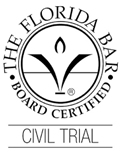The health care community is focused on providing the best care in all clinical settings. Unfortunately, despite good intentions, even experienced professionals make errors. Many medical errors are preventable; in fact, the National Quality Forum, which includes representatives of hundreds of the leading health provider organizations in the United States, has indentified many areas in need of improvement, including reliable information exchange and clear communication amongst all members of the health care team.
Communication is vitally important in a health care environment. Verbal orders should be recorded whenever possible and immediately read back in order to verify the accuracy of what was heard. The timely and accurate transmission of patient care information, especially changes in orders and new diagnostics, must be presented in a clearly understandable form to all of the patient’s current health care providers. Additionally, patients, or their legal surrogate, should be asked to recount what he or she has been told during any informed consent discussion.
Textual communication is also essential in this environment. Written documentation of the patient’s preference for life-sustaining treatments should be prominently displayed in his or her medical chart. Standard procedures for order entry as well as the labeling of charts, radiographs, and other critical information should be implemented. These recommendations may seem basic, but their absence in a health care setting increases the risk for a medical error.
Patients who are designated for high-risk, elective surgery must be clearly informed of the risks associated with the procedures and need to know which treatment facilities have demonstrated superior outcomes. This information provision activity matches the health care needs of the patient with the service delivery ability of a facility. This matching process is essential for improved health care results and the NQF sees other examples for improved matching. For example, it is recommended that pharmacists should actively participate in the medication-use process; this includes consulting, ordering, preparing, dispensing, administrating, and monitoring of medications. This is just one example of many presented by the NQF, but it does highlight the need for improved standards in matching a patient’s health care needs with the best services and personnel available.
Developing and adopting improved communication and information sharing processes in health care settings is essential for ensuring that Americans receive the best our professionals offer. The best medicine and surgical procedures fall short if communication and information sharing is lacking.






